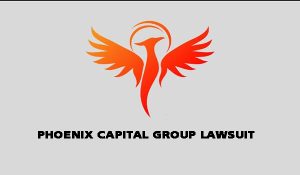
In order for any business to be successful, they simply need to bring in more money than they spend. It’s the same basic principle that applies to your own income. Of course, there are borrowing options. But, in the long term, you and the business need to be debt-free to flourish.
In the modern digital age, it is possible to start a business with very little. A computer, the internet, and a service or product are all it takes. Social media can be used to promote your business and, hopefully, gain the clients you need to become a success.
But, whether you’re just starting out or have been in business for years, you’re going to need to be aware of your business’s financial needs. The good news is that it’s not difficult, it just takes a little time to calculate. You’ll then be able to assess what money you really need to get your new business off the ground and make a success of it.
Here’s what you need to be thinking about to determine the financial needs of your new business:

-
Table of Contents
Equipment Required
In general,the equipment can be bought once and reused. This usually means you need a chunk of money upfront although you can offset the cost over years to help create a profit.
Even if you’re setting up a digital service you’re going to need a computer. You’ll want to get the best one possible to ensure it can handle all the tasks it needs to do.
You also need to consider whether one is enough. Other equipment will depend on what business you are creating. But even an at-home business is going to need a suitable desk, chair, and filing system.
In most cases, you’re going to need substantially more.
Take your time to consider all the things you’ll need and get a cost for each item.
-
Software
Next, you’ll need to consider if the business utilizes specialist software and how much this will cost. Again, you’ll need to think about the number of staff you’ll need to get started and make sure there are enough licenses for everyone.
-
Supply Costs
With the basic equipment list established you’ll need to think about supply costs. A digital product can be supplied over the internet at no cost. But a physical product or service needs to be delivered. That means there is a delivery cost as well as packaging, that’s materials, and the dispatch charge.
To estimate what this will cost you you’ll need a realistic idea of customer numbers throughout the first 6-12 months of your business starting.
Estimating customer numbers accurately is vital to establishing the potential income you’ll need.
-
Staffing Costs
It’s highly likely that you’ll need staff at some point in the first 12 months, especially if you grow as you want to. That means you need to make an allowance for how many staff you’re likely to need and how much you’ll pay them.
-
Ongoing Costs
Equipment counts as a one-off expenditure. However, there are plenty of ongoing costs. These are the ones that return every month, such as insurance, electricity, marketing budget, and even tea/coffee for staff.
They may sound small but they will add up over 12 months, you need to be aware of what they are and add them into your calculations.
-
Projected Income
Establishing every possible expenditure you can think of will give you an accurate picture of what your business will cost to run for the first 12 months.
Many people simply take this as the figure they need to borrow or have ready. That’s actually a good idea.
However, to ensure long-term success you should have an idea of how many sales you expect to make every month or even every week. You can offset this against the income to reduce your borrowing requirement. Or, you can simply use the income figures to ensure you’re hitting targets.
Establishing The Finance You Need
Market research is essential to ensure you have a market for your product/service and you can get an accurate fix on likely customer and sales numbers.
This is essential to work out the difference between what you expect to have coming in and what you’re spending. By knowing the difference you’ll be able to calculate the funds you need to borrow to get the business off the ground.
It’s essential not to shortchange yourself at this point, it can make a huge difference to your success or failure. Create accurate estimates and err on the side of caution. At worst you’ll borrow more than you need.
You can then look for the best finance option to get your business started.
-
Corporate Finance
This is the most common and often the most practical route. You’ll need to present all the above information as a business plan with cashflow and profit & loss forecasts. You can then approach a reputable corporate finance specialist and hopefully get the funds you need.
The beauty of financial backing is that you can focus on doing what is right for the business, ensuring it’s heading in the right direction, and has the best chance possible of being a success.
-
Friends & Family
Friends and family that have spare funds may be interested in investing in your idea. You’ll have to proposition them in the same way as you would a finance specialist. More importantly, if they decide to lend you the money you need a properly signed agreement. This saves issues if things go wrong.
-
Personal Funds
In an ideal world, you would have enough funds yourself to start your business. Unfortunately, this is rarely an option. However, you should look at what you have. You can then decide if this is enough to start the business or if it’s a useful emergency reserve.
-
Grants
Some new businesses in specific industries are eligible for grants. It’s also worth checking to see if this is the case. A government grant could really help you to find your feet in business.
-
Crowdfunding
Finally, you can consider crowdfunding. This generally works best if you have a new product that you can tease the customer with. They’ll fund you upfront and in return get the product for a discounted price, when it’s ready.
It’s easy to set up the relevant webpage but you need to be proactive in promoting it. For more about crowdfunds and crowdfunding marketing tips.
BY taking a few moments to accurately calculate income, outgoings, and finance requirements you’ll dramatically increase the chance of business success.


